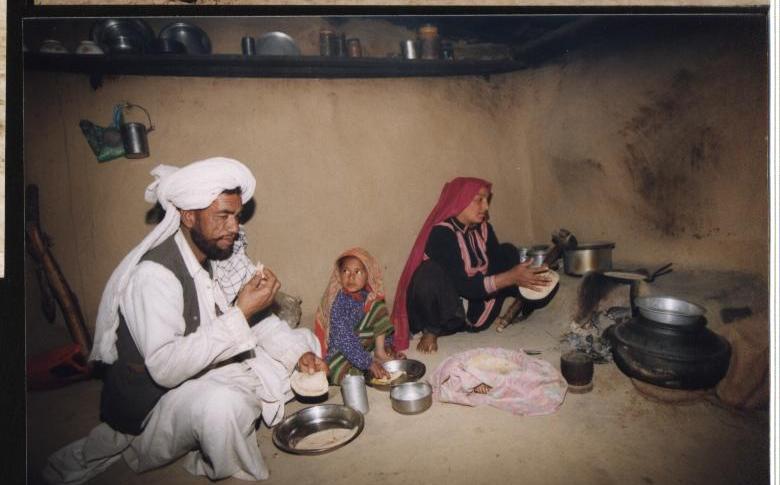Who are the Fourth World? They are the original inhabitants of a country, but despite this historic reality, these aboriginals are forced to live like refugees in their own territories. They have little or no political say, financial security and social equality in the mainstream. Ignored. Excluded. Discriminated. And silenced. Grim irony indeed.
To apprehend this gross reality, to arrest the discrimination, and to recover the true story of the aboriginals, the article will in three parts cover the indigenous tribes of Jammu and Kashmir – Gujjars and Bakerwals. The target will be to: firstly trace the origin of this ethnic community; secondly, recognize the discrimination faced by them over the years to the contemporary era: thirdly highlight the steps taken to better the subjugated lives of these communities.
This is just not a reality of Gujjars in J&K but a reality of all tribes in India and abroad. Aboriginals be it the native Americans in the USA or the Gujjars in India have been misrepresented, relegated, and stricken off the map of the country, as if they do not exist at all. The attempt of the article will be to hear the ground reality, and take steps toward highlighting who are the Fourth World indeed with respect to Gujjars and Bakerwals of J&K.
In doing so the Part-I of the article includes a threadbare interview of S.M. Chowdhary, who is Central Govt.’s Standing Counsel and a Senior advocate in J&K High Court. He has actively championed for the rights of Gujjars and Bakerwals. He is also a member of Gujjar Desh Charitable Trust, and chairperson Gujjars Advisory Board. In this capacity, he submits significant plans/proposals to alleviate the downtrodden situation of these tribes in J&K. In this interview, we have tried to find out who Gujjars are, what problems they face, how to help them, and what has been done till date for these indigenous communities.
There have been so many speculations and conjectures to origin of Gujjars and Bakerwals? Can you tell us from which region Gujjars and Bakerwals originally belong to? What is your verdict?
Yes, there has always been a difference of opinion. If we look at the history book, Gujjars came from Gujarat where they were called known as Pratiharas. While, some historians say that Gujjars have come from Georgia. From Georgia, they settled in Afghanistan. After that, they started migrating to un-partitioned India and settled in Gujarat. At that time Gujrat was known as Sorashtra meaning 100 principalities. Gujjars were, once, rulers of Sorashtra.
The Indian historians attest that Gujjars are the aboriginals of India and according to renowned historian K.M. Munshi, the tribes have been the builders of J&K.
What is the difference between Gujjars and Bakerwals? Are they separate ethnic communities like one community with different nomenclature and livelihoods?
Gujjars and Bakerwals are not different communities, but one community. Gujjars rear cattle and Bakerwals rear goat, sheep, and horses. It is an occupation based categorization.
What are their religious affiliations?
When they migrated from Gujarat, to Rajasthan, and then to Delhi, they were Hindus, but when they settled in J&K, they were influenced by Sufism and converted. As Sufism did not discriminate between religions and was not rigid, hence they accepted it. Moreover, they were given food, lands etc. hence Gujjars were inclined to adopt the new religion. Nevertheless, today Gujjars follow some aspects of Hindu culture and some of the Islam capturing a multicultural essence. As Gujjars are nomads, the places they migrate to, they gladly adopt the local cultures which undoubtedly shows their religious tolerance and acceptance of diversity.
They hence know so many languages like Hindi, Gujri, Kashmiri, Paahari, Dogri, Kargili, ladakhi and so on.
Can you highlight the contemporary plight of these tribes especially in regard to the threat of militancy?
The land and pastures where Gujjars and Bakerwals would graze their cattle is now occupied by security forces, and the militants. Their traditional routes have been closed. Now they have to travel to Srinagar by Jammu-Srinagar National Highway, and they migrate along with their entire family, cattle, and paraphernalia. When they used to travel through woods, they would get fodder for their cattle, but now as they are forced to travel through highways., their livelihood and life has been severely effected.
Gujjars living in the vicinity of the Borders, have to run, but cannot protect their cattle from the bomb blast and attacks. Everything is destroyed, yes.
What can be done to alleviate their situation?
Need is to provide them with buses, so they can carry their family, cattle and etc to their respective places. The government can take fares, and we are not asking for a free service. But an action needs to be taken. Then security, we need govt action on this part.
Speaking on the border situation, can you furth…











